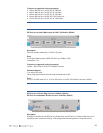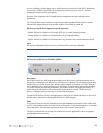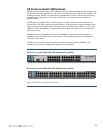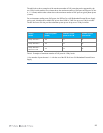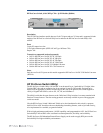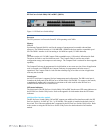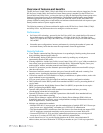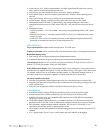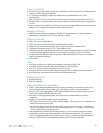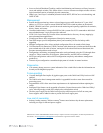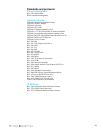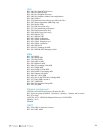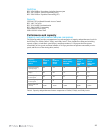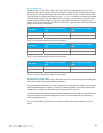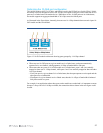
30
• Identity-driven ACL: enables implementation of a highly granular and flexible access security
policy specific to each authenticated network user
• Port security: prevents unauthorized access using MAC address lockdown
• MAC address lockout: prevents configured particular MAC addresses from connecting to the
network
• Source-port filtering: allows only specified ports to communicate with each other
• Security banner: displays customized security policy when users log in to the switch
• Management Interface Wizard: CLI-based step-by-step configuration tool to ensure that
management interfaces such as SNMP, telnet, SSH, SSL, Web, and USB are secured to desired
level
• Management access:
– All access methods—CLI, GUI, or MIB—are securely encrypted through SSHv2, SSL, and/or
SNMPv3
– RADIUS and TACACS+: can require either RADIUS or TACACS+ authentication for secure
switch CLI logon
– Secure FTP: allows secure file transfer to/from the switch and protects against unwanted file
downloads or unauthorized copying of switch configuration file
QoS functions
Layer 4 prioritization: enables prioritization based on TCP/UDP ports
Traffic prioritization: allows real-time traffic classification into 8 priority levels mapped to 8 queues
Bandwidth shaping using:
• Rate limiting: per-port ingress-based enforced bandwidth maximums
• Guaranteed minimums: per-port, per-queue egress-based guaranteed bandwidth minimums
Class of Service (CoS): sets 802.1p priority tag based on IP address, IP Type of Service (ToS), L3
protocol, TCP/UDP port number, source port, and DiffServ
Policy Enforcement Engine: Policy Enforcement Engine is user configured to select packets that are
then forwarded or dropped (based on ACLs, QoS, and Rate Limiting). The engine is fast, and can look
for multiple variables, such as an IP address and port number, in a single pass through a packet. It
provides a common user experience regardless of which switch the user is connected to.
Advanced classifier-based QoS:
• Provides finer granularity with multiple match criteria to select and prioritize network traffic
• Integrates QoS functions: select traffic for prioritization and remote mirroring, setting priority, QoS
policy, and rate limit
• QoS policy can be applied to both IPv4 and IPv6 traffic for each port or VLAN
Convergence
• IP multicast routing: includes PIM Sparse and Dense modes to route IP multicast traffic
• IP multicast data-driven IGMP: automatically prevents flooding of IP multicast traffic
• RADIUS VLAN for voice: uses standard RADIUS attribute and LLDP-MED to automatically
configure VLAN for IP phones
• LLDP-MED (Media Endpoint Discovery): a standard extension of LLDP that stores values for
parameters such as QoS and VLAN to automatically configure network devices such as IP phones
• PoE allocations: supports multiple methods (automatic, 802.3af class, LLDP-MED, or user
specified) to allocate PoE power for optimal energy saving
• iSCSI support: enables the deployment of Ethernet storage area network solutions using the iSCSI
standard
• L2/L3 jumbo frames: Layer 2/Layer 3 jumbo frames provide scalability in throughput.



